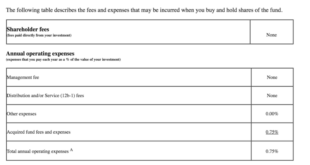Qualified Mortgage Brokers: Guide to Choosing the Right Expert. When it comes to securing a mortgage, working with a qualified mortgage broker can simplify the process, save time, and often secure better deals. But what exactly makes a mortgage broker “qualified,” and how can you ensure you’re working with the best? This article explores everything you need to know about qualified mortgage brokers, from their role and benefits to tips on selecting the right one.
What is a Qualified Mortgage Broker?
A qualified mortgage broker is a licensed professional who acts as an intermediary between borrowers and lenders. Their job is to help you find the best mortgage product based on your financial situation and needs. To be considered “qualified,” they must meet specific licensing and certification requirements, possess extensive market knowledge, and maintain a reputation for ethical practices.
Benefits of Working with a Qualified Mortgage Broker
- Access to Multiple Lenders: Brokers work with a network of lenders, giving you more options than approaching a single bank.
- Expert Advice: They guide you through complex mortgage terms and ensure you understand every step of the process.
- Customized Solutions: Qualified brokers tailor mortgage recommendations to your unique financial situation.
- Time-Saving: They handle much of the legwork, including paperwork and negotiations.
- Better Rates: Brokers often secure more competitive rates than borrowers can find on their own.
How to Identify a Qualified Mortgage Broker
Here are key factors to consider:
- Licensing and Certification: Verify they hold the required licenses in your state or country.
- Experience: Look for brokers with at least five years of experience in the mortgage industry.
- Reputation: Read online reviews and ask for client references.
- Transparency: A qualified broker is upfront about their fees and any commissions they may earn.
- Professional Memberships: Memberships in organizations like the National Association of Mortgage Brokers (NAMB) indicate credibility.
Steps to Work with a Qualified Mortgage Broker
- Research and Shortlist: Gather a list of brokers in your area and check their credentials.
- Initial Consultation: Meet with a few brokers to discuss your financial goals.
- Compare Options: Evaluate their recommendations based on terms, rates, and fees.
- Ask Questions: Don’t hesitate to ask about their experience and lender partnerships.
- Sign a Contract: Once you choose a broker, ensure all terms are clearly outlined in writing.
10 Tips for Finding the Best Qualified Mortgage Broker
- Check Licensing: Ensure they are certified by relevant authorities.
- Seek Referrals: Ask friends or family for recommendations.
- Verify Experience: Choose brokers with extensive industry experience.
- Review Testimonials: Read online reviews and client feedback.
- Assess Communication: Opt for brokers who explain terms clearly and respond promptly.
- Ask About Lenders: Confirm they work with reputable lenders.
- Inquire About Fees: Understand their fee structure before committing.
- Evaluate Negotiation Skills: Brokers who secure better rates demonstrate strong negotiation abilities.
- Look for Professional Affiliations: Memberships in reputable organizations add credibility.
- Trust Your Instincts: If something feels off, explore other options.
10 FAQs About Qualified Mortgage Brokers
- What does a qualified mortgage broker do?
They help borrowers find the best mortgage products by connecting them with suitable lenders. - How much does a mortgage broker charge?
Fees vary but are typically a percentage of the loan amount or a flat fee. - Do I need a mortgage broker?
While not mandatory, a broker can simplify the process and secure better rates. - Are mortgage brokers regulated?
Yes, brokers must adhere to licensing requirements and industry regulations. - How do brokers differ from loan officers?
Brokers work with multiple lenders, while loan officers represent one institution. - Can brokers get me better rates?
Often, yes, due to their access to a wide range of lenders and products. - What documents do I need for a broker?
Common documents include proof of income, credit reports, and bank statements. - How long does the mortgage process take?
It depends, but brokers often expedite the process compared to handling it alone. - Can I switch brokers mid-process?
Yes, but it may cause delays or additional costs. - How do brokers earn money?
They earn through lender commissions or fees charged to clients.
Conclusion
Working with a qualified mortgage broker can be a game-changer in navigating the complex world of mortgages. From accessing multiple lenders to securing better rates and personalized advice, their expertise can save you both time and money. However, the key lies in choosing the right broker who aligns with your financial goals and values transparency.
Take the time to research, ask questions, and compare options to ensure you’re making an informed decision. With the right qualified mortgage broker by your side, your journey toward homeownership can be smoother and more rewarding than ever.
 mortgage.kbk.news
mortgage.kbk.news
